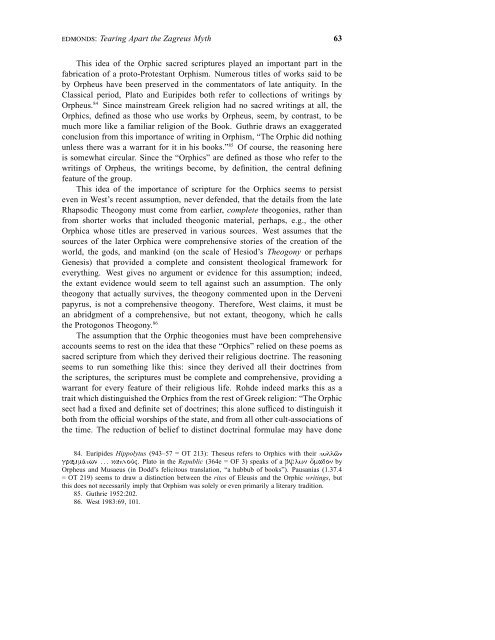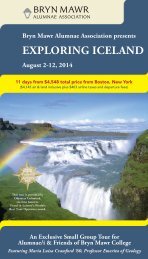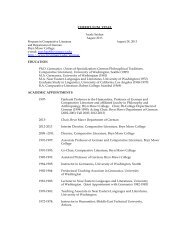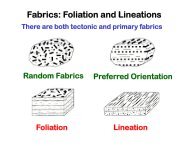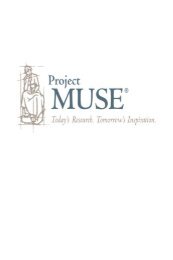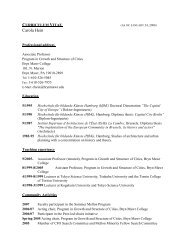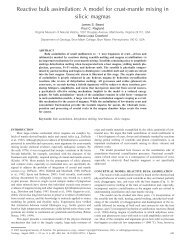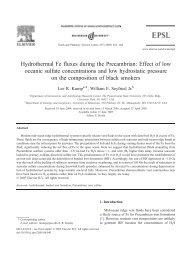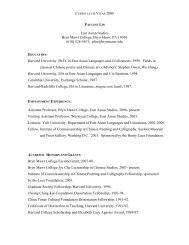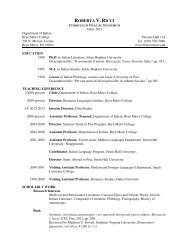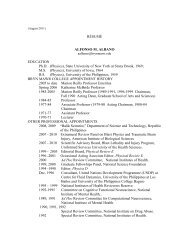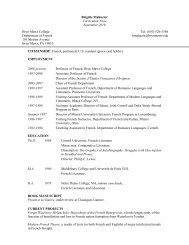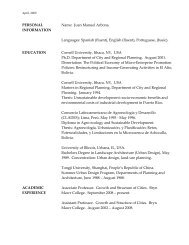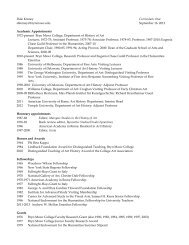Tearing Apart the Zagreus Myth - Bryn Mawr College
Tearing Apart the Zagreus Myth - Bryn Mawr College
Tearing Apart the Zagreus Myth - Bryn Mawr College
Create successful ePaper yourself
Turn your PDF publications into a flip-book with our unique Google optimized e-Paper software.
EDMONDS: <strong>Tearing</strong> <strong>Apart</strong> <strong>the</strong> <strong>Zagreus</strong> <strong>Myth</strong> 63<br />
This idea of <strong>the</strong> Orphic sacred scriptures played an important part in <strong>the</strong><br />
fabrication of a proto-Protestant Orphism. Numerous titles of works said to be<br />
by Orpheus have been preserved in <strong>the</strong> commentators of late antiquity. In <strong>the</strong><br />
Classical period, Plato and Euripides both refer to collections of writings by<br />
Orpheus. 84 Since mainstream Greek religion had no sacred writings at all, <strong>the</strong><br />
Orphics, defined as those who use works by Orpheus, seem, by contrast, to be<br />
much more like a familiar religion of <strong>the</strong> Book. Guthrie draws an exaggerated<br />
conclusion from this importance of writing in Orphism, “The Orphic did nothing<br />
unless <strong>the</strong>re was a warrant for it in his books.” 85 Of course, <strong>the</strong> reasoning here<br />
is somewhat circular. Since <strong>the</strong> “Orphics” are defined as those who refer to <strong>the</strong><br />
writings of Orpheus, <strong>the</strong> writings become, by definition, <strong>the</strong> central defining<br />
feature of <strong>the</strong> group.<br />
This idea of <strong>the</strong> importance of scripture for <strong>the</strong> Orphics seems to persist<br />
even in West’s recent assumption, never defended, that <strong>the</strong> details from <strong>the</strong> late<br />
Rhapsodic Theogony must come from earlier, complete <strong>the</strong>ogonies, ra<strong>the</strong>r than<br />
from shorter works that included <strong>the</strong>ogonic material, perhaps, e.g., <strong>the</strong> o<strong>the</strong>r<br />
Orphica whose titles are preserved in various sources. West assumes that <strong>the</strong><br />
sources of <strong>the</strong> later Orphica were comprehensive stories of <strong>the</strong> creation of <strong>the</strong><br />
world, <strong>the</strong> gods, and mankind (on <strong>the</strong> scale of Hesiod’s Theogony or perhaps<br />
Genesis) that provided a complete and consistent <strong>the</strong>ological framework for<br />
everything. West gives no argument or evidence for this assumption; indeed,<br />
<strong>the</strong> extant evidence would seem to tell against such an assumption. The only<br />
<strong>the</strong>ogony that actually survives, <strong>the</strong> <strong>the</strong>ogony commented upon in <strong>the</strong> Derveni<br />
papyrus, is not a comprehensive <strong>the</strong>ogony. Therefore, West claims, it must be<br />
an abridgment of a comprehensive, but not extant, <strong>the</strong>ogony, which he calls<br />
<strong>the</strong> Protogonos Theogony. 86<br />
The assumption that <strong>the</strong> Orphic <strong>the</strong>ogonies must have been comprehensive<br />
accounts seems to rest on <strong>the</strong> idea that <strong>the</strong>se “Orphics” relied on <strong>the</strong>se poems as<br />
sacred scripture from which <strong>the</strong>y derived <strong>the</strong>ir religious doctrine. The reasoning<br />
seems to run something like this: since <strong>the</strong>y derived all <strong>the</strong>ir doctrines from<br />
<strong>the</strong> scriptures, <strong>the</strong> scriptures must be complete and comprehensive, providing a<br />
warrant for every feature of <strong>the</strong>ir religious life. Rohde indeed marks this as a<br />
trait which distinguished <strong>the</strong> Orphics from <strong>the</strong> rest of Greek religion: “The Orphic<br />
sect had a fixed and definite set of doctrines; this alone sufficed to distinguish it<br />
both from <strong>the</strong> official worships of <strong>the</strong> state, and from all o<strong>the</strong>r cult-associations of<br />
<strong>the</strong> time. The reduction of belief to distinct doctrinal formulae may have done<br />
84. Euripides Hippolytus (943–57 = OT 213): Theseus refers to Orphics with <strong>the</strong>ir pollÀn<br />
grammˆtwn ... kapnoÔj. Plato in <strong>the</strong> Republic (364e = OF 3) speaks of a bÐblwn ímadon by<br />
Orpheus and Musaeus (in Dodd’s felicitous translation, “a hubbub of books”). Pausanias (1.37.4<br />
= OT 219) seems to draw a distinction between <strong>the</strong> rites of Eleusis and <strong>the</strong> Orphic writings, but<br />
this does not necessarily imply that Orphism was solely or even primarily a literary tradition.<br />
85. Guthrie 1952:202.<br />
86. West 1983:69, 101.


